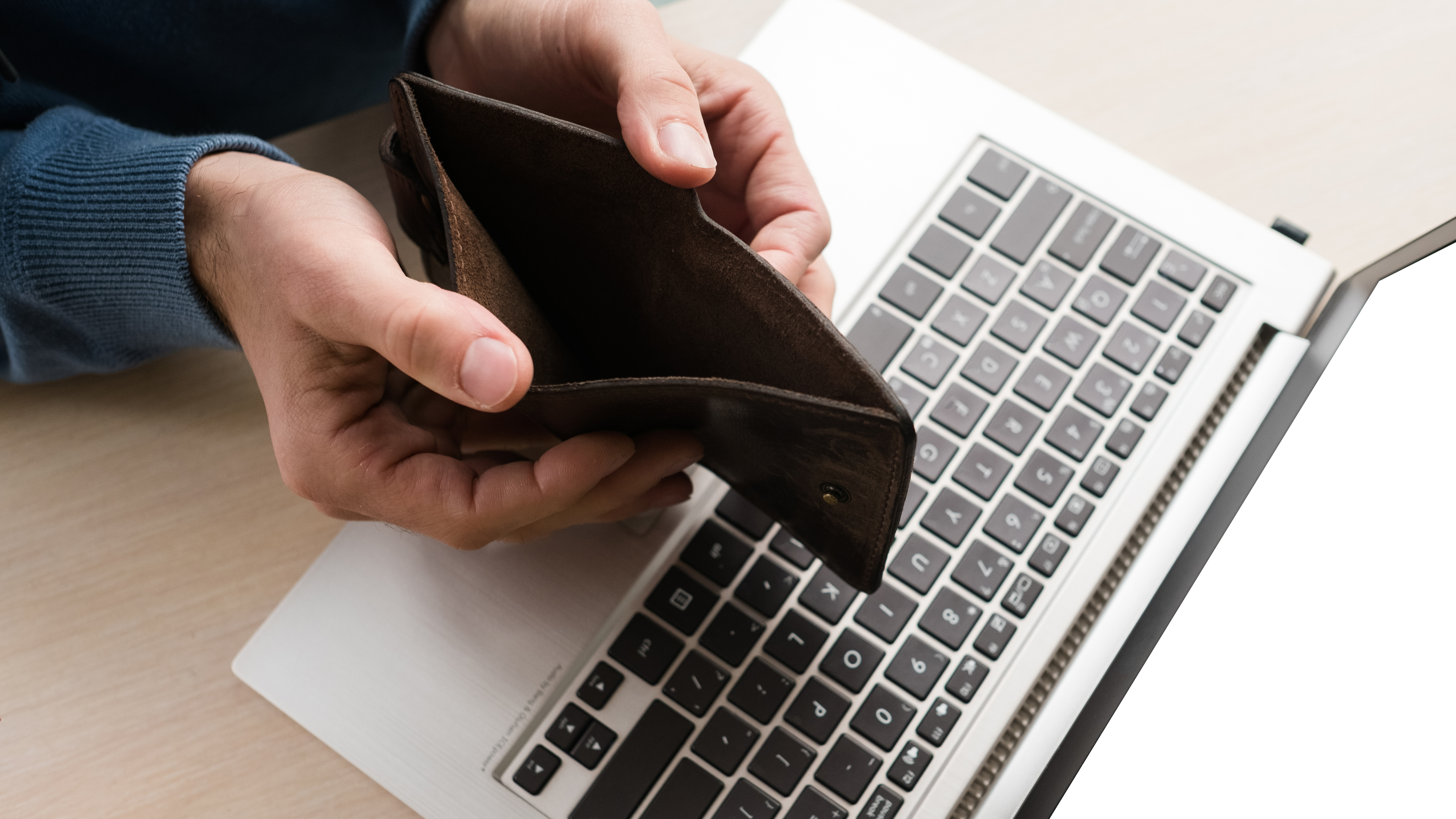
Apartment Renter’s Guide to Rental Scams
By Adeeva Fritz
Aug 17, 2021
During your apartment search when you find a rental listing that looks perfect, you might be tempted to cut corners to make it yours. This can be especially true in a competitive real estate market. However, if you aren’t careful, you could fall victim to a rental scam. In this article, we share everything you need to know about rental scams and how to avoid them. Spotting a scammer isn’t difficult if you know what to look out for.
What is an apartment rental scam?
When it comes to rental fraud, the goal of the scammer is to convince a prospective renter to wire money or make a cash payment without a written lease agreement in place. Once the renter hands over the money, the scammer ghosts them, and the renter has no recourse because they never entered into a legally binding contractual agreement. Note that even when you have a written lease agreement, it’s not safe to wire money or pay rental fees in cash because, in both cases, it’s difficult to document and prove in the event of a dispute.
Hopefully, this article will help you avoid being scammed. However, if you fall victim to rental fraud, reach out to the Federal Trade Commission (FTC) for support. You can contact them by phone or file a complaint in their Internet Crime Complaint Center. You should also enlist the help of your local law enforcement authorities.
11 Red Flags of a Rental Scam
Here are signs you might be dealing with a scammer:
- They don’t ask you to fill out a rental application.
- They don’t require you to sign a written lease.
- They want you to sign an incomplete lease.
- They don’t do a credit check or background check.
- They list the apartment rental for a low price that’s way too good to be true.
- They make excuses about why they can’t meet you in person to give you or your proxy a tour of the rental property.
- They offer to show you a similar unit versus the actual unit.
- They ask you to wire money or pay cash upfront for the first month’s rent, last month’s rent, and security deposit before you’ve signed a lease agreement.
- They only accept cash or a money wire transfer — any legitimate landlord won’t be looking to avoid a paper trail.
- They charge an application fee that well exceeds the going rate of a background check.
- They require an upfront deposit to hold the apartment before you’ve seen it or signed a lease.
Types of Rental Scams to Look Out for
Although most landlords and property managers are legit, and scammers are not the norm, here are a few of the most common scams you’ll find in apartment rentals.
The Copycat
One type of rental fraud is when a scammer hijacks a legit rental listing from a reputable site by copying it and changing the contact information. After adding their email address and phone number, they place the ad on a site like Craigslist that does not verify listings, where they are less likely to be detected as a scammer. They may even alter the price to make the rental listing even more appealing.
Always be wary of apartment rental listings that look too good to be true. To spot a copycat rental scam, you can run a reverse image search on Google to see if the image is being used on other sites. Sometimes, you’ll find the exact same property info, photos and all, in another part of the country or even overseas. Another way to spot a copycat listing is if the landlord or property manager claims that they have a long line of prospective renters excited about the rental property, but because you sound like a great applicant, they’d be willing to hold it for you if you send them a deposit right away. FOMO and a little flattery are often all it takes to convince an unsuspecting renter to fork over their money without a signed lease.
The Bait & Switch
Another type of rental listing scam is the good old bait and switch, where a landlord or property manager lists an apartment for one price but changes the numbers in the lease agreement.
Be sure to read your lease agreement carefully to ensure you don’t inadvertently sign a lease for the wrong monthly rent. In this type of rental scam, the landlord or property manager may also add extra fees that you weren’t expecting. Once all parties have signed the lease agreement, it’s a legally binding contract. There are no do-overs or take-backs. So, as boring as reading the legal language in a lease may be, it’s worth taking the time to review it in detail. If there’s something you don’t understand or doesn’t make sense, don’t be afraid to ask questions.
The Verbal Agreement
This one seems like an obvious and easy scam to avoid, but fraudsters can be quite convincing. They may tell you that the market is crazy busy right now, they are buried in lease agreements, and if you don’t want to lose the place, you should pay upfront immediately. If you hesitate, they may act hurt or offended that their word isn’t enough for you. Don’t fall for the act. At worst, they’re trying to make off with your money. At best, they’re disorganized, unprofessional, and not likely to be a good landlord.
Tips on How to Avoid a Rental Scam
Now that you know the red flags and types of rental scams to watch out for, here's some advice on how to avoid them.
- Don't make any lease payments before you’ve received a copy of the written lease signed by all parties. No lease agreement in writing? No money. It’s that simple.
- Don't pay by cash or wire transfer because neither leaves a paper trail in the event of a dispute. There are plenty of other safer ways to pay your first month’s rent, last month’s rent, security deposit, and subsequent monthly rent, including via a personal check, certified check, cashier’s check, credit card, electronic payment from your bank, or through an online rental payment platform if accepted by the landlord or property manager. Also, never send money overseas.
- Don't pursue listings full of spelling errors, typos, and information that doesn’t add up — for example, photos that don’t match the geography where the apartment is located.
- Don't provide personal information like your social security number or bank account info before verifying that the property owner, landlord, or property manager are legit. While this information is necessary to conduct a background check and to confirm your ability to cover the rent, you’ll want to make sure the listing is from a credible source beforehand.
- Don't sign a lease without doing your due diligence. Know who you’re renting from — get the name of the property owner / landlord or management company and do an internet search to make sure they don’t have any complaints, negative reviews, or claims of fraud against them.
- Don't settle for just pictures. Whenever possible, ask for a video. If you cannot view the property in person with the landlord or property manager, send a trusted source to do so on your behalf. If you're offered a virtual tour, make sure it covers everything you'd normally look for during an in-person walk-through. See our apartment tour checklist to help you look for signs of a good versus a bad rental.
- Don't place your trust in a landlord or property manager willing to rent you an apartment without checking your background. As part of the rental application process, any legitimate property manager or landlord should require a credit check. If they’re not worried about your ability to pay, you should be worried about their credibility. By running a background check and credit check on potential renters, they can increase the chance of finding a good tenant.
The Bottom Line
To help determine the value of an apartment, always use a reputable rental site. At ApartmentAdvisor, we even include a deal rating showing whether an apartment is a fair, good, or great deal.
Just remember, if the price is way too good to be true, it probably is. Any time an apartment is priced significantly under comps in the neighborhood, there's reason to be wary. Proceed with caution, or not at all.
Top cities
Atlanta Apartments
1,801 apartments starting at $750/month
Austin Apartments
6,062 apartments starting at $550/month
Baltimore Apartments
1,535 apartments starting at $700/month
Boston Apartments
5,833 apartments starting at $425/month
Charlotte Apartments
3,197 apartments starting at $570/month
Chicago Apartments
6,479 apartments starting at $400/month
Dallas Apartments
5,774 apartments starting at $525/month
Fort Worth Apartments
2,958 apartments starting at $500/month
Houston Apartments
7,392 apartments starting at $450/month
Las Vegas Apartments
1,040 apartments starting at $700/month
Los Angeles Apartments
12,155 apartments starting at $690/month
Miami Apartments
923 apartments starting at $975/month
Milwaukee Apartments
1,160 apartments starting at $500/month
New York Apartments
9,404 apartments starting at $600/month
Oakland Apartments
919 apartments starting at $850/month
Orlando Apartments
899 apartments starting at $800/month
Philadelphia Apartments
3,579 apartments starting at $500/month
Phoenix Apartments
3,726 apartments starting at $650/month
Pittsburgh Apartments
1,316 apartments starting at $500/month
Portland Apartments
2,353 apartments starting at $595/month
Raleigh Apartments
1,468 apartments starting at $550/month
San Antonio Apartments
3,471 apartments starting at $500/month
San Diego Apartments
2,869 apartments starting at $650/month
San Francisco Apartments
625 apartments starting at $500/month
San Jose Apartments
482 apartments starting at $880/month
Seattle Apartments
3,312 apartments starting at $452/month
Tampa Apartments
855 apartments starting at $838/month
Washington DC Apartments
2,440 apartments starting at $810/month


